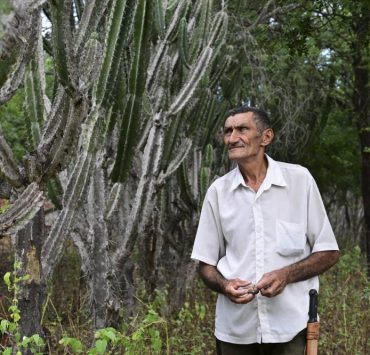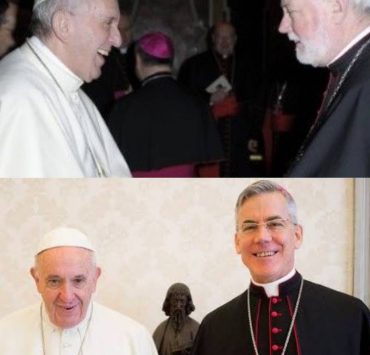A cut of pride: 1st PH queer barbershop thrives in Biñan
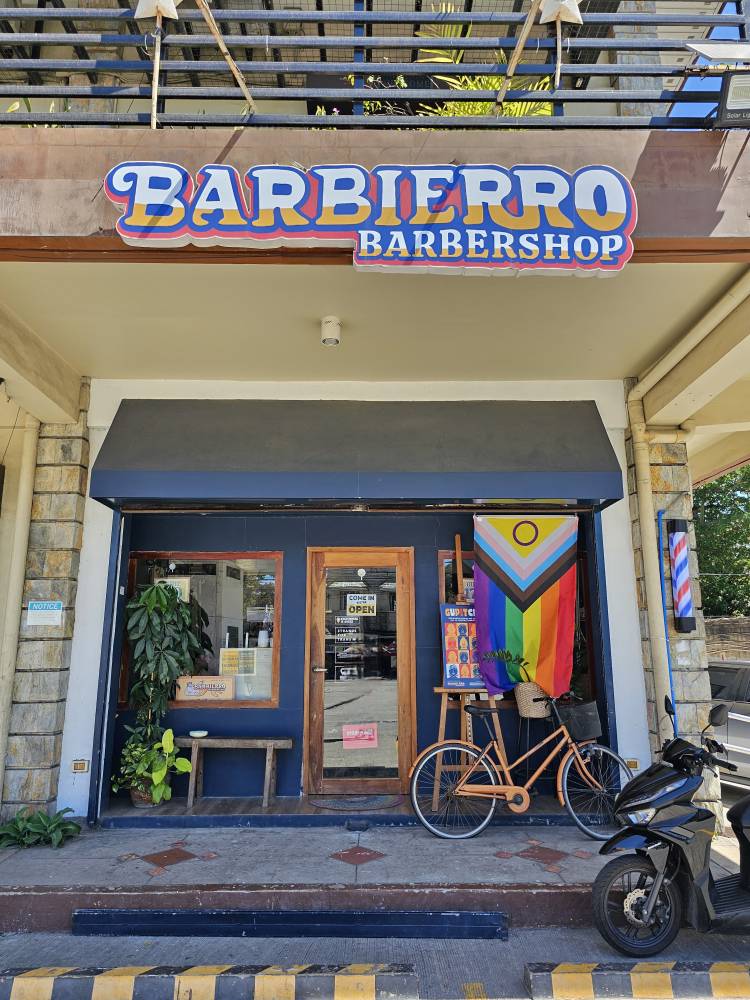
With its facade of striking colors featuring a buff, bearded and tattooed siren holding a pair of scissors, Barbierro, a barbershop in Biñan, Laguna, is easily noticeable on the side of a skimpy yet busy road leading to a major expressway.
Its unusual aesthetics aren’t the only thing that makes Barbierro an industry standout; its entire business concept makes it a pioneer in the industry, too—as the Philippines’ first loud and proud queer barbershop.
Run by partners Paul Sumayao and Jedi Directo, Barbierro opened a couple of years ago along San Francisco Road. The idea, however, had long been brewing in Sumayao’s mind because of his and Directo’s past experiences with the typical macho-type barbershops.
In fact, Directo always had his grooming done at home just to avoid the unfortunate male toxicity of some of these establishments.
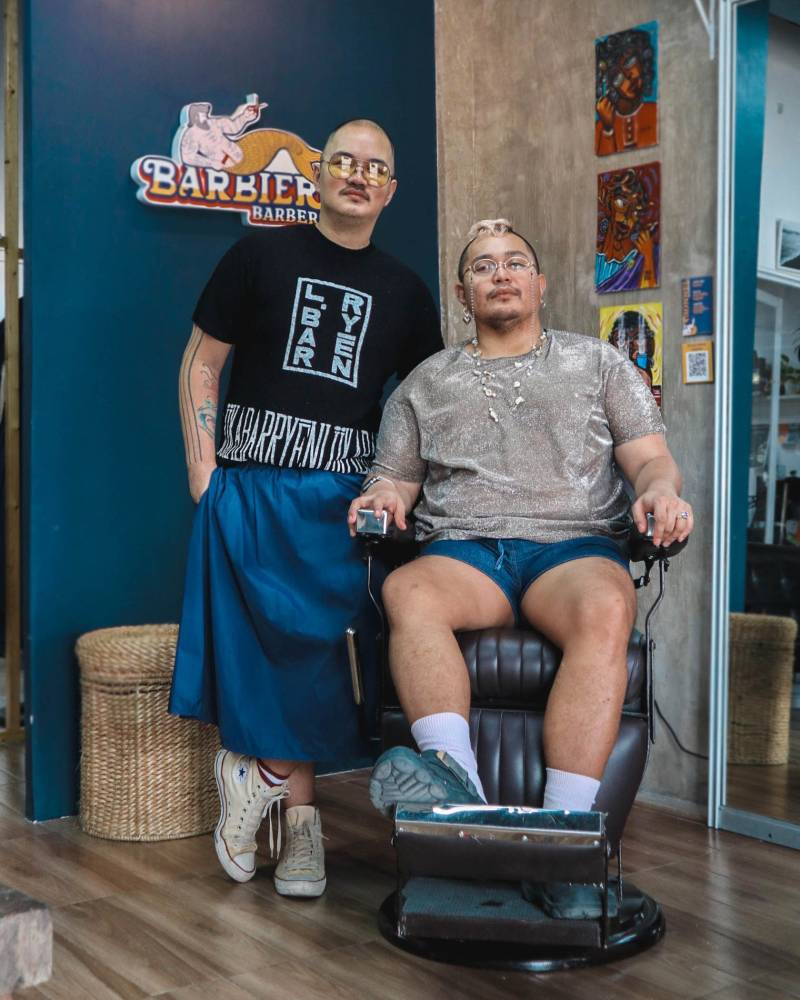
“He always felt threatened in the usual barbershops because he’s queer. He wears a mohawk, has a lot of earrings—flamboyant,” says Sumayao, who is also the director for membership and regional relations of the Philippine LGBT Chamber of Commerce (PLCC).
“And it was the same way for me; when I ask for a different hairstyle, if I move differently, or if I don’t react to discussions of sabong (cockfighting) or basketball, why do I feel uncomfortable in a barbershop? And that’s how [the idea] came to be: I wanted a barbershop that’s a safe space for everyone.”
The idea aptly came at a time when Sumayao was still in graduate school pursuing higher studies in entrepreneurship at Jose Rizal University, while working in marketing for Havaianas.
His first foray into full-time entrepreneurship, however, happened in 2021 with the establishment of his and Directo’s creatives agency, Studio Hibang (which they actually run from inside a small office in Barbierro).
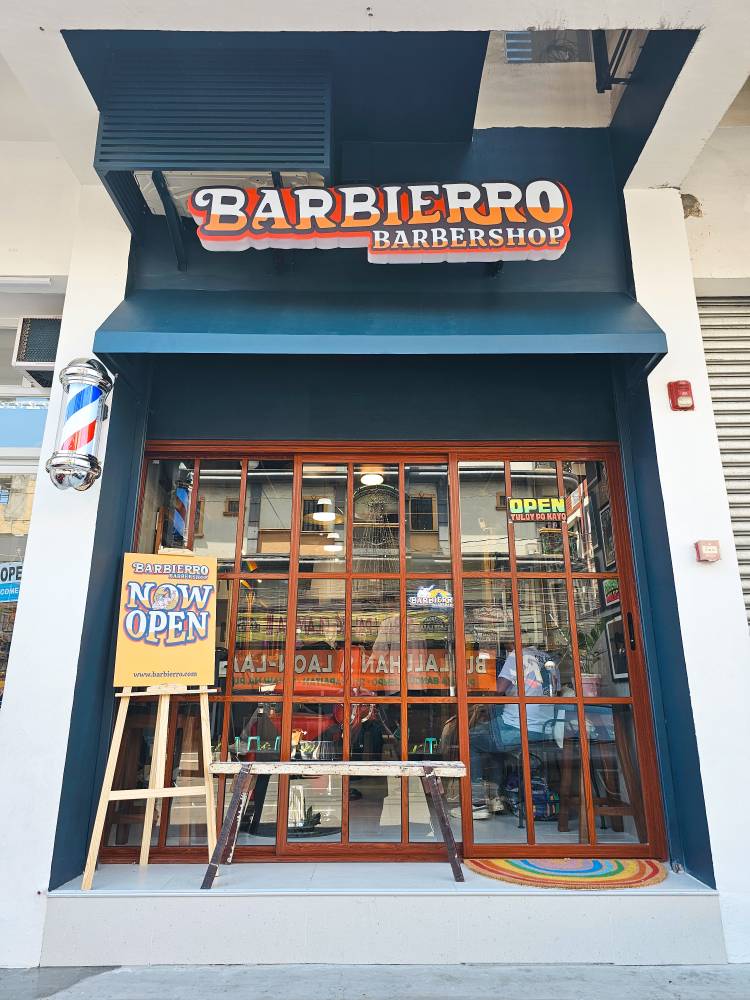
“We branded it as an LGBTQ+ creatives agency because we feel that the [community’s] contribution to the economy is being very much undermined,” Sumayao says. “Like the PLCC, which I had already heard about years ago, that’s what I envisioned: to have more queer-owned businesses in the Philippines.”
From there, opening Barbierro was the natural next step for the couple. By then, Sumayao had been living in Biñan for around five years already, and having grown up in Pili, Camarines Sur, he says Biñan “made sense” for him to call home, too—Old World charm, small streets, the occasional flooding.
“Biñan is also a good model for businesses everywhere,” he adds. “From the filing of our application to securing the right documents, it was a pretty smooth experience.”
To ensure that Barbierro fulfilled their vision of being a safe space, Sumayao says that’s what they first focused on: the physical interiors. They veered away from the typical industrial or gentlemen’s club look, and instead filled the shop with vibrant colors, with the walls adorned with queer artwork. The TV isn’t always stuck on a basketball channel, either.
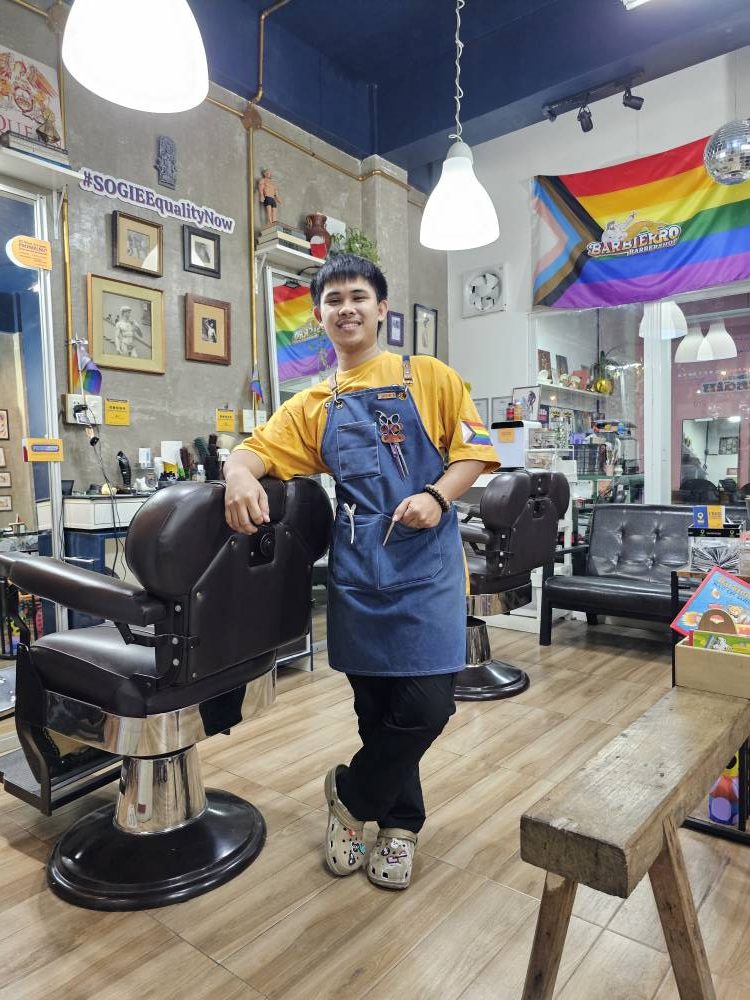
Well-lit, well-ventilated, cool and spacious, Sumayao and Directo soon saw the shop attracting families as well, particularly moms and wives who appreciate the comfortable and safe waiting area as their sons and husbands get their regular haircut. (This writer, who sported an undercut at the height of the pandemic, and prefers to now maintain a pixie cut, has become a Barbierro regular as well.)
Not just for LGBTQ
“Around four out of 10 customers are the moms with kids, and then 35 to 40 percent are still the usual clientele,” Sumayao says.
“My favorite customers are the lesbians, since usually, when their girlfriends go to the usual barbershops, the other one prefers to wait outside because they are not comfortable inside. We get most of the high-ticket customers among the seniors, since they prefer the executive care we provide, like the massage, etc.”
Based on customer feedback, Sumayao says Biñan has so far been receptive of having the Philippines’ first queer barbershop opening in town. For Sumayao and Directo, they’re happy to have a chance to amplify the conversation on the impact of LGBTQ+ businesses on the country’s economics.
Through its franchise business model, Barbierro already has a second branch along Laong Laan, Manila; they are also looking to expand to Quezon City and Bicol.
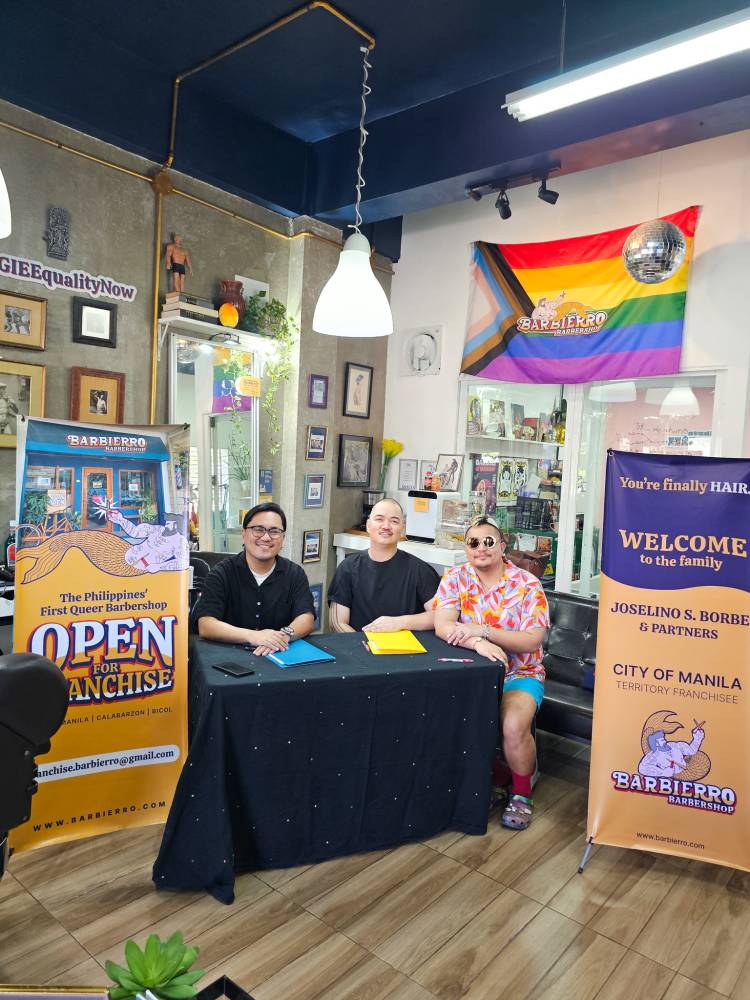
“I want the business owners who will apply to come from the queer community,” Sumayao says. “And it’s important to me that they espouse the queer values of the brand, as well the values that I also uphold among all our staff: integrity, honesty and transparency.”
Their barbers, says Sumayao, have also been instrumental allies in changing the barbershop industry. While they have not had any negative experience with their employees, Sumayao says that during their SOGIE or Sexual Orientation, Gender Identity and Gender Expression briefings, what really surprised the barbers was the breadth of the gender spectrum.
“A lot of them were not aware of the nongender-conforming groups. Of course, what they were familiar with were the classifications of gay, lesbian and transwoman. That’s why I’m easing them into it. We watch ‘Drag Race’ here, and it helps that they hear the participants in the show talk about a whole range of issues. The fact that Jedi and I are here calling each other ‘babe’, that we have our photo up on the wall, and that our gay friends come over and we talk about a lot of things other than sex—that normalizes it for them,” Sumayao says.














